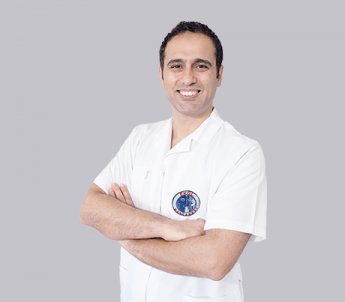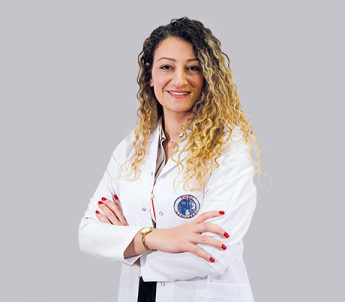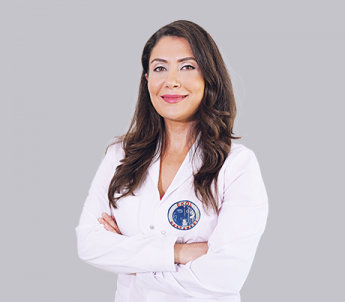Gynecology is a medical specialty focusing on the health of the female reproductive system, including the vagina, uterus, ovaries, and breasts. It encompasses a wide range of issues, from puberty and menstruation to fertility, childbirth, and menopause.
Gynecologists are doctors specializing in this field, providing preventive care, diagnosing and treating disorders such as ovarian cysts, endometriosis, and cervical cancer. They also offer family planning and reproductive health services.
This field closely intersects with obstetrics, which deals with pregnancy and childbirth, leading to the combined practice of Obstetrics and Gynecology (OB-GYN).
Advances in gynecology have significantly improved women's health care, making it a crucial aspect of modern medicine.
Regular gynecological exams are essential for early detection and treatment of various conditions, ensuring overall well-being and reproductive health.
It is generally recommended that young women start seeing a gynecologist in their early teens, typically around the age of 13 to 15. The first visit may be more focused on education and addressing any questions or concerns rather than extensive medical exams. This initial visit allows young individuals to establish a relationship with a gynecologist and become familiar with the healthcare provider.
However, there are some situations that might warrant earlier visits to a gynecologist, such as:
Remember that the first visit to a gynecologist can be an opportunity for young individuals to ask questions, discuss concerns, and establish a foundation for ongoing reproductive health care.
The frequency of gynecological visits can vary depending on an individual's age, health status, and specific medical needs. Here are some general guidelines for how often you should visit a gynecologist:
It's essential to note that these recommendations can vary based on individual circumstances, and it's always best to consult with a healthcare provider who can provide personalized guidance on how often you should visit a gynecologist. Regular gynecological visits are important for maintaining reproductive health and addressing any potential issues early.
A gynecological exam, also known as a pelvic exam, is a medical examination performed by a gynecologist or healthcare provider to assess and maintain the health of a woman's reproductive system. Here's what typically happens during a gynecological exam:
It's important to note that gynecological exams should be performed by trained healthcare professionals in a respectful and sensitive manner. The frequency of these exams can vary depending on your age, medical history, and specific health needs. Always consult with your healthcare provider for personalized guidance on gynecological exams and any concerns you may have.
A Pap smear, also known as a Pap test or cervical cytology, is a medical screening procedure used to detect abnormal changes in the cells of the cervix, which is the lower part of the uterus that connects to the vagina. The Pap smear is an essential and valuable tool in women's healthcare for the following reasons:
It's important to note that cervical cancer is a preventable and treatable disease when detected early. The frequency of Pap smears and cervical cancer screening may vary depending on factors such as age, medical history, and the presence of risk factors. Healthcare providers can provide guidance on the appropriate screening schedule for each individual. Overall, Pap smears play a critical role in the early detection and prevention of cervical cancer, contributing to improved women's health outcomes.
Yes, gynecological visits are necessary even after menopause. Menopause is a natural phase in a woman's life when she stops menstruating and her reproductive hormone levels decline. While menopause marks the end of the reproductive years, it does not mean the end of gynecological care. Here's why gynecological visits are important after menopause:
The frequency of gynecological visits after menopause may vary depending on individual health and risk factors. Some women may need annual check-ups, while others may require less frequent visits. It's essential to discuss your specific postmenopausal healthcare needs with your gynecologist or healthcare provider to determine the appropriate schedule and care plan for you. Regular gynecological visits remain a vital component of women's health maintenance throughout their lives.
 Dr. Gürsoy Pala graduated from Ege University Faculty of Medicine in 2003. In 2009, he completed his specialization in Obstetrics and Gynecology at Dokuz Eylül University Faculty of Medicine. In 2016, he obtained the title of Associate Professor in Obstetrics and Gynecology in Ankara (through an oral exam). He has worked as the Head of the Perinatology Clinic at Tepecik Training and Research Hospital, as well as at Konak Maternity Hospital, Gülhane Military Medical Academy, and Tokat Niksar State Hospital. He is a member of the Turkish Society of Gynecology and Obstetrics, President of the Ege Perinatology Society, a board member of the Perinatology and High-Risk Pregnancy Society, and a member of the Turkish Society of Gynecology and Obstetrics Perinatology Society and Obstetric and Gynecological Ultrasonography Society. He holds certifications in Laparoscopy, Hysteroscopy, Genital Aesthetics, and Colposcopy. He has presented oral presentations at international and national conferences and has articles published in domestic and foreign journals. Dr. Gürsoy Pala is married and has two children. He is proficient in English. Professional Interests: Pregnancy Monitoring High-Risk Pregnancy Management Normal and Cesarean Delivery Amniocentesis, Cordocentesis, Chorionic Villus Biopsy Intrauterine Procedures Detailed Ultrasonography Urogynecology and Pelvic Floor Surgery (Uterine, Bladder, and Vaginal Prolapse Surgeries; Urinary Incontinence Treatment and Surgeries) Gynecological Laparoscopic and Robotic Surgery (Minimally Invasive Surgeries) Genital Aesthetic Surgeries Hysteroscopic Surgeries Infertility Treatments and Insemination Colposcopy
Dr. Gürsoy Pala graduated from Ege University Faculty of Medicine in 2003. In 2009, he completed his specialization in Obstetrics and Gynecology at Dokuz Eylül University Faculty of Medicine. In 2016, he obtained the title of Associate Professor in Obstetrics and Gynecology in Ankara (through an oral exam). He has worked as the Head of the Perinatology Clinic at Tepecik Training and Research Hospital, as well as at Konak Maternity Hospital, Gülhane Military Medical Academy, and Tokat Niksar State Hospital. He is a member of the Turkish Society of Gynecology and Obstetrics, President of the Ege Perinatology Society, a board member of the Perinatology and High-Risk Pregnancy Society, and a member of the Turkish Society of Gynecology and Obstetrics Perinatology Society and Obstetric and Gynecological Ultrasonography Society. He holds certifications in Laparoscopy, Hysteroscopy, Genital Aesthetics, and Colposcopy. He has presented oral presentations at international and national conferences and has articles published in domestic and foreign journals. Dr. Gürsoy Pala is married and has two children. He is proficient in English. Professional Interests: Pregnancy Monitoring High-Risk Pregnancy Management Normal and Cesarean Delivery Amniocentesis, Cordocentesis, Chorionic Villus Biopsy Intrauterine Procedures Detailed Ultrasonography Urogynecology and Pelvic Floor Surgery (Uterine, Bladder, and Vaginal Prolapse Surgeries; Urinary Incontinence Treatment and Surgeries) Gynecological Laparoscopic and Robotic Surgery (Minimally Invasive Surgeries) Genital Aesthetic Surgeries Hysteroscopic Surgeries Infertility Treatments and Insemination Colposcopy  In 2001, Dr. İbrahim Egemen Ertaş graduated from Ege University Faculty of Medicine. He completed his specialization at Ankara Zekai Tahir Burak Women's Health Education and Research Hospital in 2006. In 2014, he earned the title of Associate Professor in Obstetrics and Gynecology through an oral exam in Istanbul. He has published nearly 100 scientific articles in reputable national and international journals. Dr. İbrahim Egemen Ertaş is married and has one child. He is proficient in English. Professional Interests: Urogynecology and Pelvic Floor Minimally Invasive Surgeries (Uterine, Bladder, and Vaginal Prolapse Surgeries; Urinary Incontinence Treatment and Surgeries) Gynecological Laparoscopic and Robotic Surgery (Minimally Invasive Surgeries) Laparoscopic Hysterectomy (Uterus Removal Surgery) Laparoscopic Ovarian Preserving Cyst Surgeries Laparoscopic Uterine Prolapse Surgeries Laparoscopic Endometriosis and Endometrioma (Chocolate Cyst) Surgeries Uterine Myomectomy Surgery Genital Aesthetic Surgeries Hysteroscopic Polyp, Curtain, and Myoma Surgeries Infertility Treatments, Insemination, and Anesthetized Uterine Imaging Colposcopy and HPV Monitoring Pregnancy Monitoring Epidural Normal and Cesarean Delivery Memberships in Scientific Organizations: Turkish Society of Gynecology and Obstetrics Turkish Urogynecology and Pelvic Reconstructive Surgery Society Gynecological Endoscopy Society Post-Specialization Experience: Yozgat-Çekerek State Hospital Gynecology and Obstetrics Clinic (Compulsory Service and Private Practice) Elazığ Military Hospital (National Service) and Elazığ Private Çapa Women's Obstetrics Center Kastamonu-Tosya State Hospital Women's Health and Obstetrics Clinic Ankara Gazi University Faculty of Medicine, Gynecology Clinic Charité University Hospital Berlin, Urogynecology Clinic and Pelvic Floor Surgery Center, Germany IRCAD, Laparoscopic and Robotic Surgery Training Center, Strasbourg, France Tepecik Training and Research Hospital, Women's Health and Obstetrics Clinic; Instructor (2010-2022) Ekol Healthcare Group Sada Hospital
In 2001, Dr. İbrahim Egemen Ertaş graduated from Ege University Faculty of Medicine. He completed his specialization at Ankara Zekai Tahir Burak Women's Health Education and Research Hospital in 2006. In 2014, he earned the title of Associate Professor in Obstetrics and Gynecology through an oral exam in Istanbul. He has published nearly 100 scientific articles in reputable national and international journals. Dr. İbrahim Egemen Ertaş is married and has one child. He is proficient in English. Professional Interests: Urogynecology and Pelvic Floor Minimally Invasive Surgeries (Uterine, Bladder, and Vaginal Prolapse Surgeries; Urinary Incontinence Treatment and Surgeries) Gynecological Laparoscopic and Robotic Surgery (Minimally Invasive Surgeries) Laparoscopic Hysterectomy (Uterus Removal Surgery) Laparoscopic Ovarian Preserving Cyst Surgeries Laparoscopic Uterine Prolapse Surgeries Laparoscopic Endometriosis and Endometrioma (Chocolate Cyst) Surgeries Uterine Myomectomy Surgery Genital Aesthetic Surgeries Hysteroscopic Polyp, Curtain, and Myoma Surgeries Infertility Treatments, Insemination, and Anesthetized Uterine Imaging Colposcopy and HPV Monitoring Pregnancy Monitoring Epidural Normal and Cesarean Delivery Memberships in Scientific Organizations: Turkish Society of Gynecology and Obstetrics Turkish Urogynecology and Pelvic Reconstructive Surgery Society Gynecological Endoscopy Society Post-Specialization Experience: Yozgat-Çekerek State Hospital Gynecology and Obstetrics Clinic (Compulsory Service and Private Practice) Elazığ Military Hospital (National Service) and Elazığ Private Çapa Women's Obstetrics Center Kastamonu-Tosya State Hospital Women's Health and Obstetrics Clinic Ankara Gazi University Faculty of Medicine, Gynecology Clinic Charité University Hospital Berlin, Urogynecology Clinic and Pelvic Floor Surgery Center, Germany IRCAD, Laparoscopic and Robotic Surgery Training Center, Strasbourg, France Tepecik Training and Research Hospital, Women's Health and Obstetrics Clinic; Instructor (2010-2022) Ekol Healthcare Group Sada Hospital  In 2009, Dr. İrfan Özer graduated from Ege University Faculty of Medicine. He completed his specialization at Zekai Tahir Burak Education and Research Hospital in 2014. He has worked at Ankara Numune Education and Research Hospital and Çiğli Regional Education and Research Hospital. He is a member of the Turkish Society of Gynecology and Obstetrics and holds certifications in Laparoscopy and Hysteroscopy. He has presented verbal presentations at international and national conferences and has articles published in domestic and foreign journals. Dr. İrfan Özer is married and has two children. He is proficient in English. Areas of Interest: Pregnancy Monitoring High-Risk Pregnancy Management Normal and Cesarean Delivery Urogynecology and Pelvic Floor Surgery (Uterine, Bladder, and Vaginal Prolapse Surgeries; Urinary Incontinence Treatment and Surgeries) Gynecological Laparoscopic and Robotic Surgery (Minimally Invasive Surgeries) Genital Aesthetic Surgeries Hysteroscopic Surgeries Infertility Treatments and Insemination Colposcopy
In 2009, Dr. İrfan Özer graduated from Ege University Faculty of Medicine. He completed his specialization at Zekai Tahir Burak Education and Research Hospital in 2014. He has worked at Ankara Numune Education and Research Hospital and Çiğli Regional Education and Research Hospital. He is a member of the Turkish Society of Gynecology and Obstetrics and holds certifications in Laparoscopy and Hysteroscopy. He has presented verbal presentations at international and national conferences and has articles published in domestic and foreign journals. Dr. İrfan Özer is married and has two children. He is proficient in English. Areas of Interest: Pregnancy Monitoring High-Risk Pregnancy Management Normal and Cesarean Delivery Urogynecology and Pelvic Floor Surgery (Uterine, Bladder, and Vaginal Prolapse Surgeries; Urinary Incontinence Treatment and Surgeries) Gynecological Laparoscopic and Robotic Surgery (Minimally Invasive Surgeries) Genital Aesthetic Surgeries Hysteroscopic Surgeries Infertility Treatments and Insemination Colposcopy  In 2010, Dr. Sadık Sözdinler graduated from Ege University Faculty of Medicine. He completed his specialization at Dokuz Eylül University Faculty of Medicine in 2017. He has worked at Van Regional Research Hospital and Muş State Hospital. He is a member of the Turkish Society of Gynecology and Obstetrics and holds certifications in Laparoscopy, Hysteroscopy, and Genital Aesthetics. He has presented verbal presentations at international and national conferences and has articles published in domestic and foreign journals. Dr. Sadık Sözdinler is proficient in English. Areas of Professional Interest: Pregnancy Monitoring High-Risk Pregnancy Management Normal and Cesarean Delivery Urogynecology and Pelvic Floor Surgery (Uterine, Bladder, and Vaginal Prolapse Surgeries; Urinary Incontinence Treatment and Surgeries) Gynecological Laparoscopic and Robotic Surgery (Minimally Invasive Surgeries) Genital Aesthetic Surgeries Hysteroscopic Surgeries Infertility Treatments and Insemination Colposcopy
In 2010, Dr. Sadık Sözdinler graduated from Ege University Faculty of Medicine. He completed his specialization at Dokuz Eylül University Faculty of Medicine in 2017. He has worked at Van Regional Research Hospital and Muş State Hospital. He is a member of the Turkish Society of Gynecology and Obstetrics and holds certifications in Laparoscopy, Hysteroscopy, and Genital Aesthetics. He has presented verbal presentations at international and national conferences and has articles published in domestic and foreign journals. Dr. Sadık Sözdinler is proficient in English. Areas of Professional Interest: Pregnancy Monitoring High-Risk Pregnancy Management Normal and Cesarean Delivery Urogynecology and Pelvic Floor Surgery (Uterine, Bladder, and Vaginal Prolapse Surgeries; Urinary Incontinence Treatment and Surgeries) Gynecological Laparoscopic and Robotic Surgery (Minimally Invasive Surgeries) Genital Aesthetic Surgeries Hysteroscopic Surgeries Infertility Treatments and Insemination Colposcopy  Dr. Dilay Gökdeniz graduated from Eskişehir Osmangazi Faculty of Medicine in 2010. She completed her specialization at Dokuz Eylül University Faculty of Medicine from 2011 to 2016. She has worked at Tekirdağ Çerkezköy State Hospital and Çorum Osmancık State Hospital. She is a member of the Turkish Society of Gynecology and Obstetrics, Society of Reproductive Medicine and Surgery, and Pelvic Floor and Cosmetic Gynecology Society. She has presented verbal presentations at international and national conferences and has articles published in domestic and foreign journals. Dr. Dilay Gökdeniz is proficient in English. Areas of Interest: Pregnancy Monitoring High-Risk Pregnancy Management Normal and Cesarean Delivery Urogynecology and Pelvic Floor Surgery (Uterine, Bladder, and Vaginal Prolapse Surgeries; Urinary Incontinence Treatment and Surgeries) Gynecological Laparoscopic and Robotic Surgery (Minimally Invasive Surgeries) Hysterectomy Surgeries Genital Aesthetic Surgeries Hysteroscopic Surgeries Infertility Treatments and Insemination Colposcopy
Dr. Dilay Gökdeniz graduated from Eskişehir Osmangazi Faculty of Medicine in 2010. She completed her specialization at Dokuz Eylül University Faculty of Medicine from 2011 to 2016. She has worked at Tekirdağ Çerkezköy State Hospital and Çorum Osmancık State Hospital. She is a member of the Turkish Society of Gynecology and Obstetrics, Society of Reproductive Medicine and Surgery, and Pelvic Floor and Cosmetic Gynecology Society. She has presented verbal presentations at international and national conferences and has articles published in domestic and foreign journals. Dr. Dilay Gökdeniz is proficient in English. Areas of Interest: Pregnancy Monitoring High-Risk Pregnancy Management Normal and Cesarean Delivery Urogynecology and Pelvic Floor Surgery (Uterine, Bladder, and Vaginal Prolapse Surgeries; Urinary Incontinence Treatment and Surgeries) Gynecological Laparoscopic and Robotic Surgery (Minimally Invasive Surgeries) Hysterectomy Surgeries Genital Aesthetic Surgeries Hysteroscopic Surgeries Infertility Treatments and Insemination Colposcopy  Place and Year of Birth: Afyon - 1987 Education: Süleyman Demirel University Faculty of Medicine (2005 - 2011) Specialization: Zekai Tahir Burak Education and Research Hospital (2011-2017) Experience: Ankara Zekai Tahir Burak Education and Research Hospital Siirt State Hospital Professional Interests: Pregnancy Monitoring High-Risk Pregnancy Management Normal and Cesarean Delivery Gynecological Laparoscopic Operations Genital Aesthetic Surgeries Hysteroscopic Surgeries Infertility Treatments and Insemination Colposcopy HSG (Contrast-Enhanced Uterine Imaging) Myoma, Cyst, and Uterine Operations Labioplasty (Labia Minora Aesthetics) Vaginal Tightening Surgery Urinary Incontinence Surgery G-Spot Filling (Orgasm Enhancement) Memberships in Scientific Organizations: Turkish Society of Gynecology and Obstetrics Courses and Certificates: Laparoscopy / Hysteroscopy Certificate Genital Aesthetic Certificate Colposcopy Course Foreign Language: English
Place and Year of Birth: Afyon - 1987 Education: Süleyman Demirel University Faculty of Medicine (2005 - 2011) Specialization: Zekai Tahir Burak Education and Research Hospital (2011-2017) Experience: Ankara Zekai Tahir Burak Education and Research Hospital Siirt State Hospital Professional Interests: Pregnancy Monitoring High-Risk Pregnancy Management Normal and Cesarean Delivery Gynecological Laparoscopic Operations Genital Aesthetic Surgeries Hysteroscopic Surgeries Infertility Treatments and Insemination Colposcopy HSG (Contrast-Enhanced Uterine Imaging) Myoma, Cyst, and Uterine Operations Labioplasty (Labia Minora Aesthetics) Vaginal Tightening Surgery Urinary Incontinence Surgery G-Spot Filling (Orgasm Enhancement) Memberships in Scientific Organizations: Turkish Society of Gynecology and Obstetrics Courses and Certificates: Laparoscopy / Hysteroscopy Certificate Genital Aesthetic Certificate Colposcopy Course Foreign Language: English